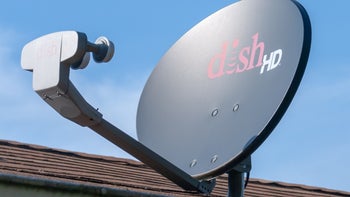Dish is starting to prove its 5G network rollout ambitions are real (albeit distant)

Although there are technically still four major carriers operating in today's US wireless industry, Sprint is on the verge of extinction, which will obviously strengthen T-Mobile's market position while arguably weakening the overall competition to the Verizon/AT&T duopoly.
But a new player is expected to enter the game before the Sprint brand will go away, acquiring some valuable prepaid assets from T-Mobile as a (timid) first step in this very challenging arena. If everything goes according to plan, Dish should be able to close its Boost Mobile purchase around July 1, getting roughly 10 million customers as part of a $1.4 billion deal that will instantly turn the company into a T-Mo MVNO (mobile virtual network operator).
Dish, of course, has much greater long-term ambitions as far as the wireless landscape is concerned, committing last year to cover 70 percent of the country by June 2023 with a 5G signal that doesn't exist yet.
Given the historic unreliability of Founder and Chairman Charlie Ergen, many analysts never expected that promise to materialize, but with various economic activities slowly going back to normal in the aftermath of the nation's coronavirus pandemic peak, new reports seem to suggest Dish is indeed planning to take on Verizon, AT&T, and T-Mobile... eventually.
Following the imminent completion of the aforementioned Boost acquisition, the company is reportedly aiming to "move onto network deployment" at last, having purportedly signed "hundreds of leases" for 5G towers lately. While Dish might need to set up as many as 15,000 cell tower sites over the next few years to meet those lofty goals established by the Department of Justice, this is certainly an encouraging start to a monumental endeavor.
More than anything, these early efforts to set the stage for a new nationwide 5G network are making previously skeptical analysts confident that Dish will "show up in a meaningful way" in the cell tower industry, no longer focusing on simply hoarding spectrum for profit and instead looking to invest big money for a change in a mass-oriented product.
Said product, of course, is still likely to take a long time to actually reach the masses, with the "majority" of Dish's 5G network buildout work expected to happen in 2022. By then, T-Mobile and even Verizon and AT&T could gain insurmountable subscriber, coverage, and speed leads over the market rookie, although Dish remains bullish about the prospects of its "more flexible and less expensive to operate" network.














Things that are NOT allowed: